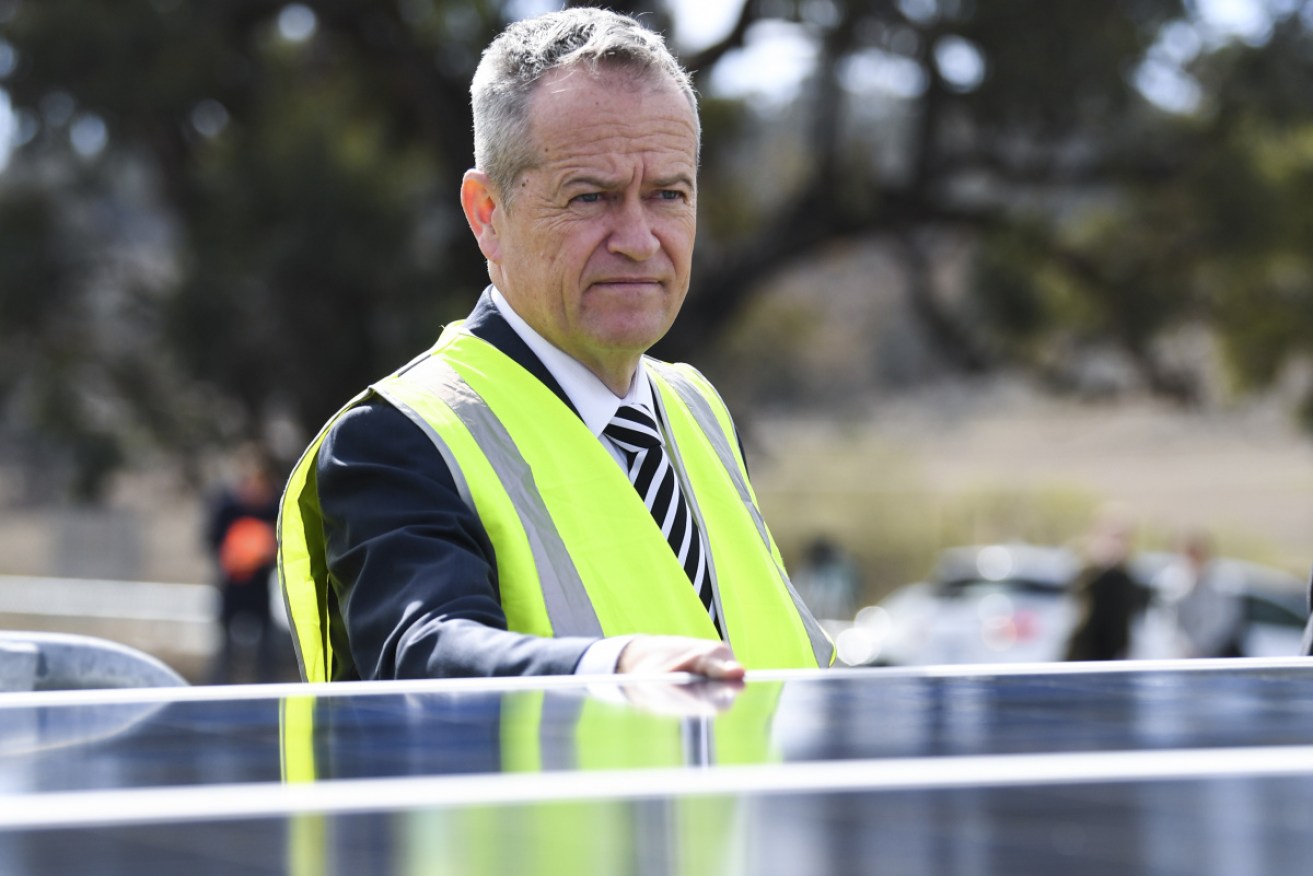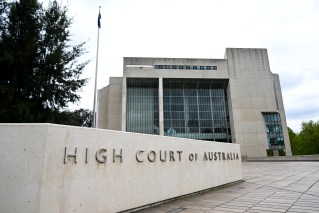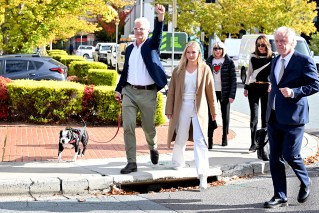Labor charges its energy policy with household battery installations


Opposition Leader Bill Shorten visits Mount Majura Solar Farm in Canberra in August. Photo: AAP
Bill Shorten will announce a plan to slash power bills by up to 60 per cent by establishing a national target of one million household battery installations by 2025.
The Labor leader will unveil his energy plan on Thursday, which keeps the Turnbull government’s National Energy Guarantee policy but with a higher emissions reduction target.
The Household Battery Program will offer a $2000 rebate for 100,000 households on incomes of less than $180,000 per year to purchase and install battery systems, as well as low-cost loans for households.
“Real savings of hundreds, potentially even thousands, of dollars a year, every year,” Mr Shorten said.
In a speech to be delivered in Sydney, Mr Shorten will also offer “bipartisanship” on the existing NEG legislation that has split the Liberal Party.
The strategy is two pronged: Embarrass the Morrison government over its failure to achieve reform and highlight the party’s internal division by offering to support its own policy and buy insurance to get the Liberals to vote for the NEG and an energy policy after the election if Labor needs their votes in the Senate.

Josh Frydenberg and Malcolm Turnbull announced in August the National Energy Guarantee had been approved by the Coalition. Photo: AAP
“Frankly, the single most important thing about energy and climate policy right now is to have one,” Mr Shorten said.
“The current treasurer designed the NEG framework. The current prime minister was one of its most forceful advocates.
“The Parliament could debate and vote on this before Christmas, if the Liberals were so inclined. But let’s be clear: We will work with the Coalition, but we will not wait for them.
“If I’m elected prime minister, I will not sit around and wait for the Liberals and Nationals to stop arguing about whether climate change is real.”
According to the independent Parliamentary Budget Office the battery plan will cost $215 million over the forward estimates – the four years from 2020.
The ALP predicts this will triple the number of battery systems in Australian households and help manufacturers bring down costs.
Labor cites Smart Energy Council estimates that new household solar and batteries would allow most homes to save more than 60 per cent off their power bills.
Mr Shorten will also announce a $100 million in a Neighbourhood Renewables Program to ensure renters and social housing residents don’t miss out from the savings.
“We will establish community power hubs to support the development of renewables projects in local communities, such as solar gardens on apartment rooftops, community wind farms, energy-efficiency upgrades for social housing, and grants for community groups to pilot new projects,’’ he said.
Labor retains its policy of aiming to deliver 50 per cent of power from renewables by 2030, keep power prices lower, and create thousands of jobs in the renewables industry.
That target is set to form the basis of the Morrison government’s fightback, with conservatives ready to rumble over concerns the 50 per cent renewables target is too high.








